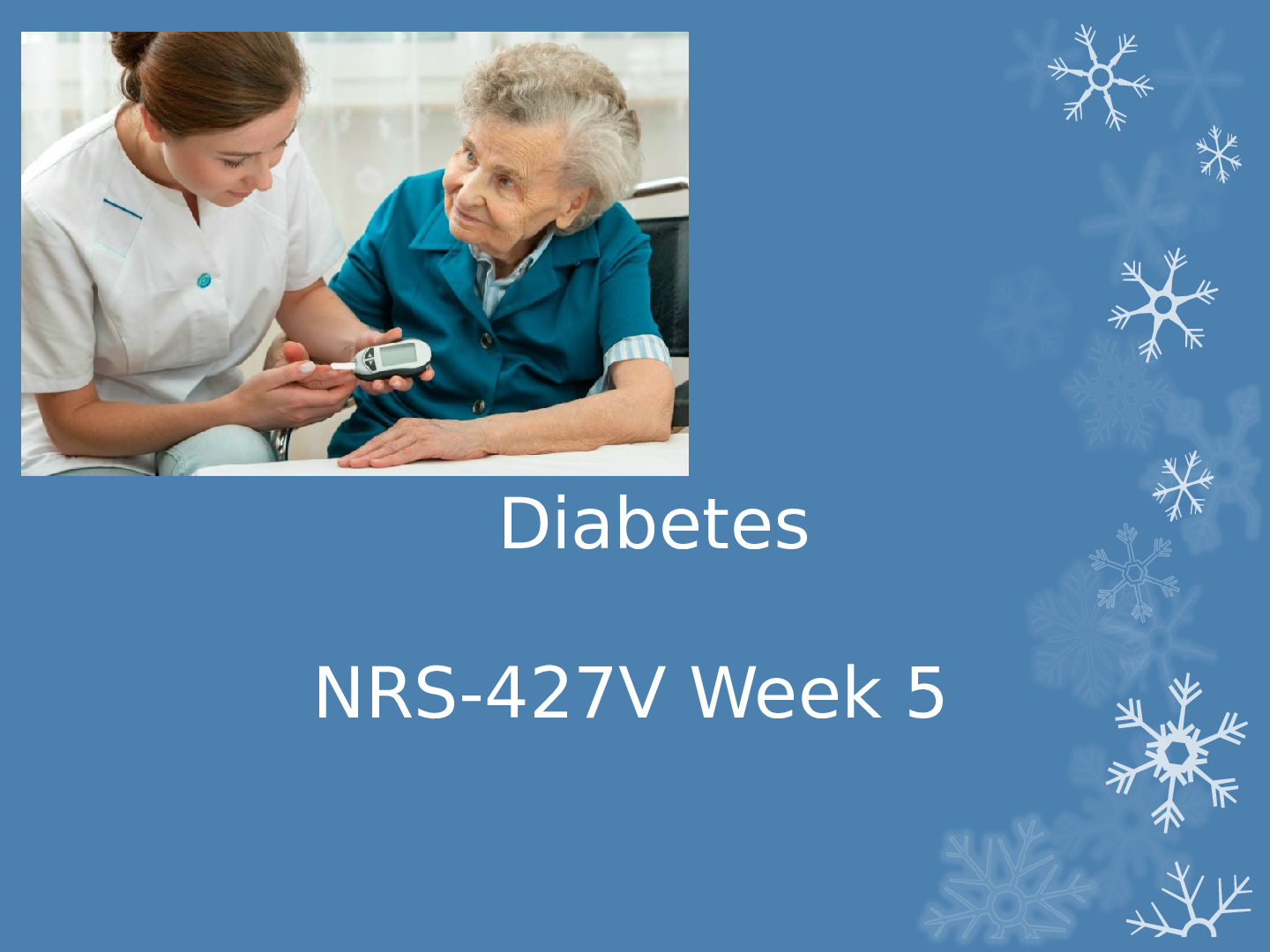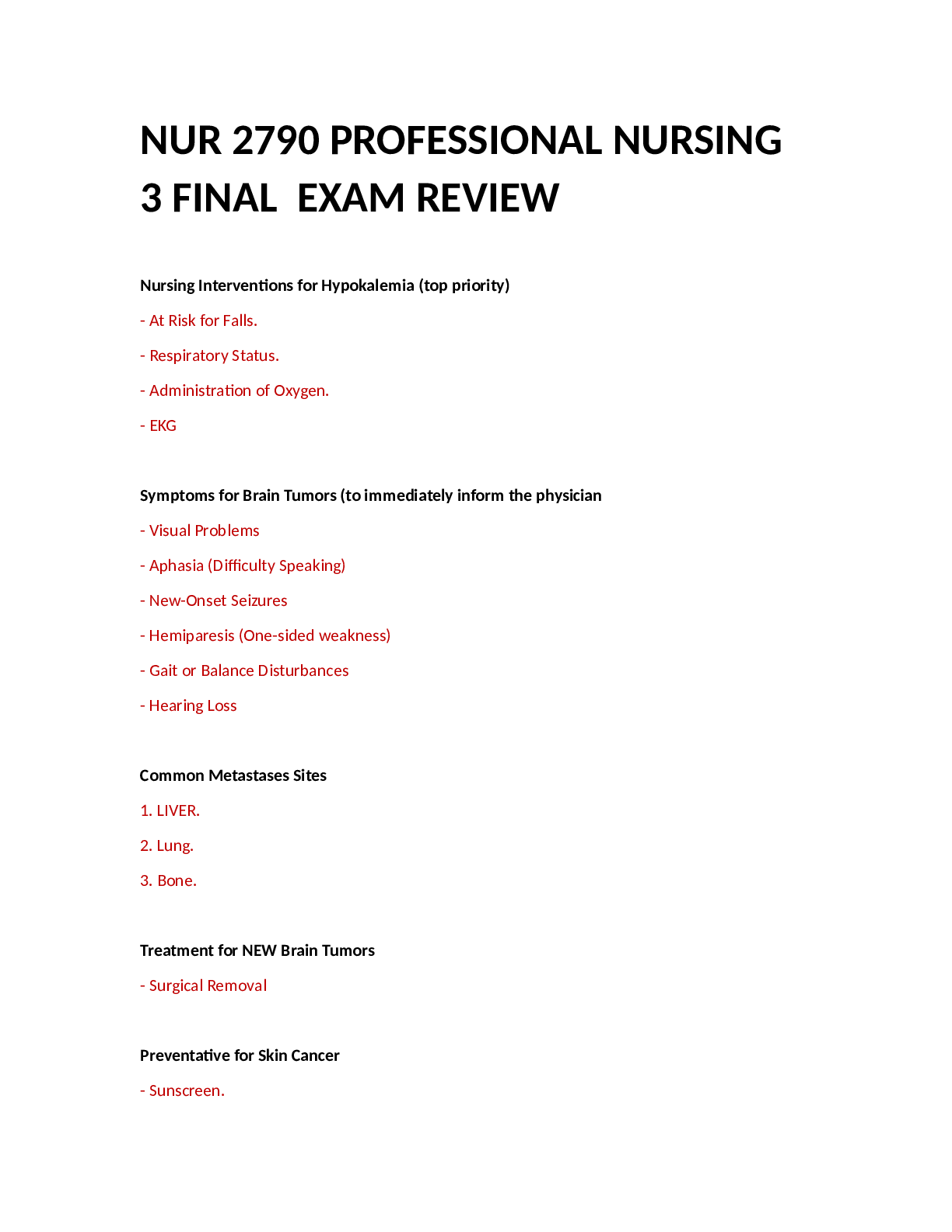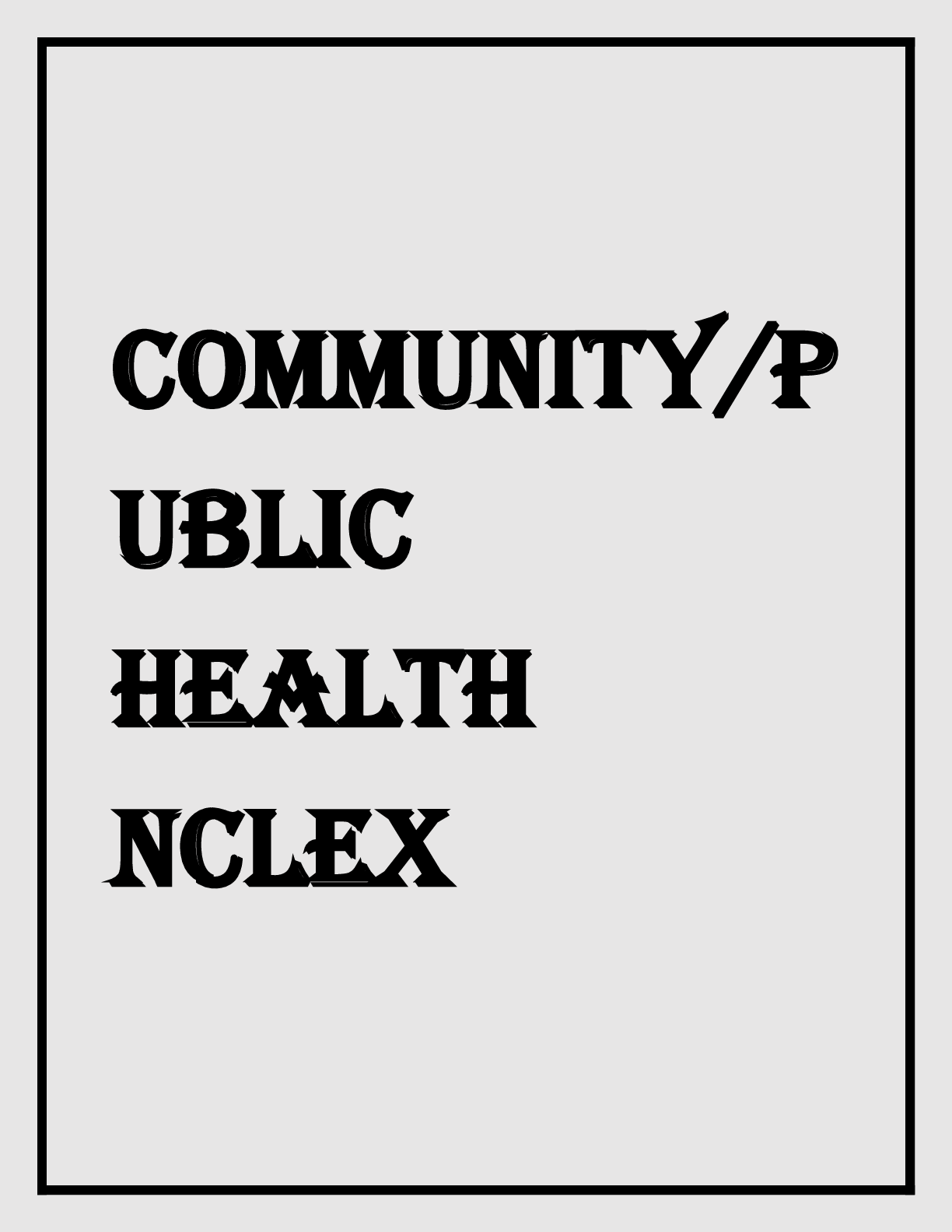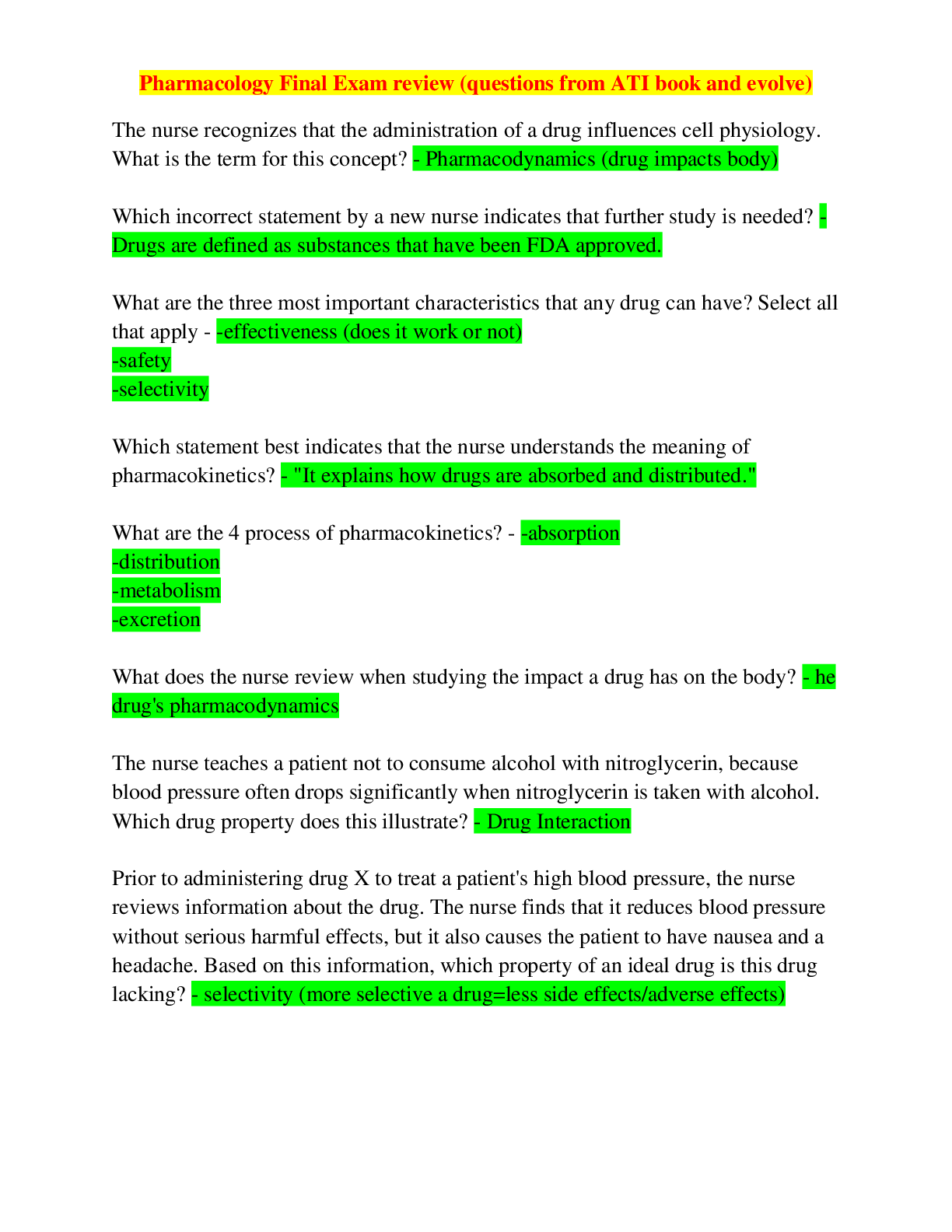*NURSING > EXAM REVIEW > NURSING FU 101 /NURSING FU 101 Health Assessment | LATEST Final Exam Review (Questions and verified (All)
NURSING FU 101 /NURSING FU 101 Health Assessment | LATEST Final Exam Review (Questions and verified Answers)
Document Content and Description Below
NUR FU 101 Health Assessment LATEST Final Exam Review (Questions and verified Answers) Assessment Final Review Difference between objective and subjective data - Subjective data: what the person sa... ys about himself or herself during history taking - Objective data: observe by inspecting, percussing, palpating, and auscultating during the physical exam Difference between signs and symptoms - Signs: objective abnormality that you as the examiner could detect on physical examination or through diagnostic testing - Symptoms: subjective sensation that the person feels from the disorder Spirituality vs Religion (religion is organized) - Spirituality: born out of unique experience, personal attempt to find meaning in life - Religion: organized system of beliefs concerning the cause, nature, and purpose of the universe, belief in a divine power to be obeyed and worshipped Communication techniques-Facilitation, Reflection, Open-ended questions, Direct questions - Facilitation: - Reflection: - Open-ended questions: asks for narrative information; states the topic to be discussed but only in general terms; used to begin interview, introduce a new section of questions, and whenever the person introduces a new topic - Direct questions: aka closed questions; asks for specific information; elicit a one or two word answers; to obtain specific information that was left out of the narrative; only ask one at a time; choose language the client understands Difference between delirium and dementia - Delirium: acute confusional change or loss of consciousness and perceptual disturbance; it may accompany acute illness and it is usually the resolved when the underlying cause is treated - Dementia: gradual progressive process, causing decreased cognitive function even though the person is fully conscious and awake- it is not reversible; NOT A PART OF NORMAL AGING o Risk factors: Caucasians, advanced age, women, singles, living alone, lower educational attainment, and lower income Levels of Consciousness - Lethargic: drifts off the sleep when not stimulated - Obtunded: sleeps most of the time, arouses with loud shout or vigorous shake - Stupor: responds only to persistent or vigorous shake or pain - Coma: completely unconscious. No response to pain; light coma will have reflexes Decreased kidney and liver function make the older adult more susceptible to alcohol effects Heroin withdrawal: - Fever, restlessness/agitation, dilated pupils, sweating, runny nose, muscle pain Other conditions associated with Intimate Partner Violence (IPV) - STIs, pelvic pain, stress related conditions such as chronic irritable bowel syndrome; lacerations and bruises; vaginal and anal tears; bladder infections; depression; symptoms of PTSD (problems sleeping and panic attacks); discrepancy between the physical findings and how they occurred When should you assess for IPV? Every visit [Show More]
Last updated: 2 years ago
Preview 1 out of 14 pages
Buy this document to get the full access instantly
Instant Download Access after purchase
Buy NowInstant download
We Accept:

Reviews( 0 )
$10.00
Can't find what you want? Try our AI powered Search
Document information
Connected school, study & course
About the document
Uploaded On
May 02, 2021
Number of pages
14
Written in
Additional information
This document has been written for:
Uploaded
May 02, 2021
Downloads
0
Views
100




.png)

.png)
 (SATISFACTION GUARANTEED).png)
 Chamberlain College of Nursing (100 Correct Q & A) (SATISFACTION GUARANTEED, Check REVIEWS of my 1000 Plus Clients.png)
MODULE 4 COMMUNITY DIAGNOSIS AND COMMUNITYDEVELOPMENT PROGRESS REPORT MODULE 4 LAB - LEARNING PACKET.png)





